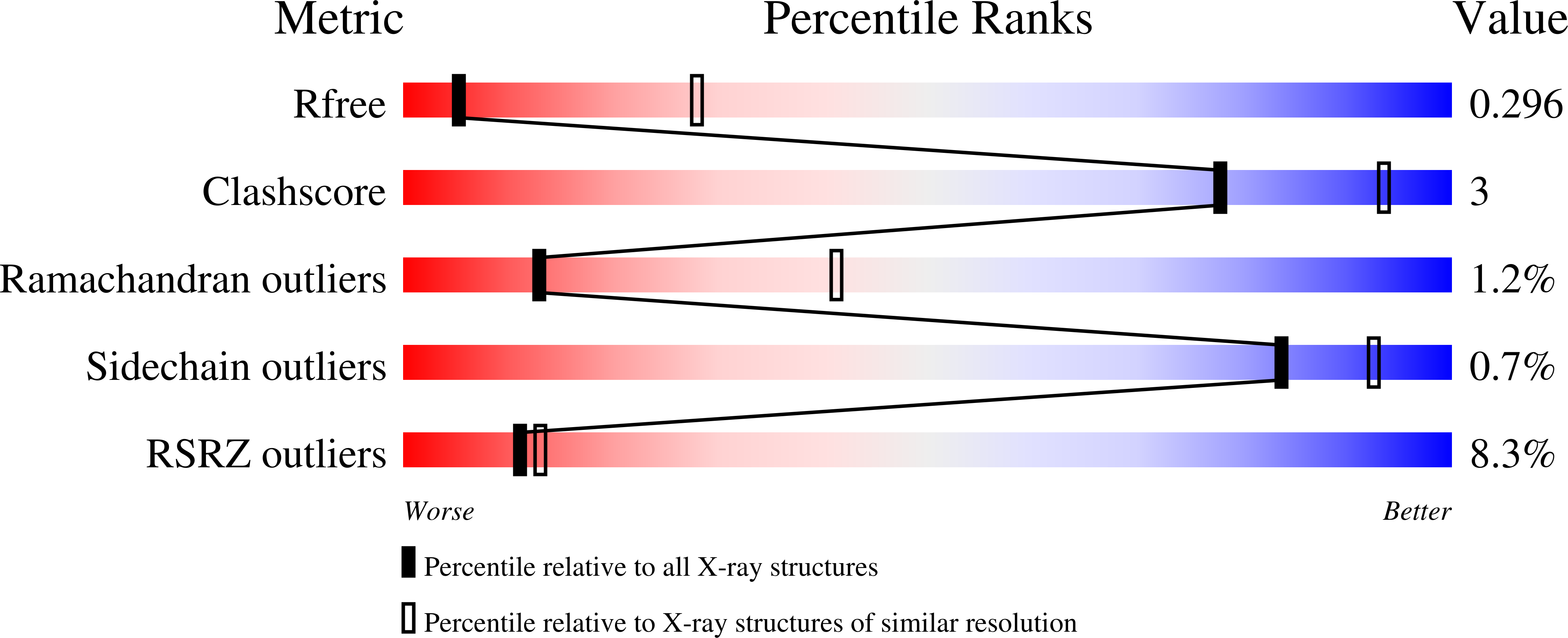STRUCTURAL BASIS OF IL-23 ANTAGONISM BY AN ALPHABODY PROTEIN
Desmet, J., Verstraete, K., Bloch, Y., Lorent, E., Wen, Y., Devreese, B., Vandenbroucke, K., Loverix, S., Hettmann, T., Deroo, S., Somers, K., Henderikx, P., Lasters, I., Savvides, S.(2014) Nature Communications 5: 5237
- PubMed: 25354530
- DOI: https://doi.org/10.1038/ncomms6237
- Primary Citation of Related Structures:
5MJ3, 5MJ4 - PubMed Abstract:
Protein scaffolds can provide a promising alternative to antibodies for various biomedical and biotechnological applications, including therapeutics. Here we describe the design and development of the Alphabody, a protein scaffold featuring a single-chain antiparallel triple-helix coiled-coil fold. We report affinity-matured Alphabodies with favourable physicochemical properties that can specifically neutralize human interleukin (IL)-23, a pivotal therapeutic target in autoimmune inflammatory diseases such as psoriasis and multiple sclerosis. The crystal structure of human IL-23 in complex with an affinity-matured Alphabody reveals how the variable interhelical groove of the scaffold uniquely targets a large epitope on the p19 subunit of IL-23 to harness fully the hydrophobic and hydrogen-bonding potential of tryptophan and tyrosine residues contributed by p19 and the Alphabody, respectively. Thus, Alphabodies are suitable for targeting protein-protein interfaces of therapeutic importance and can be tailored to interrogate desired design and binding-mode principles via efficient selection and affinity-maturation strategies.
Organizational Affiliation:
1] COMPLIX N.V., Technology Park 4, 9052 Ghent, Belgium [2].


















